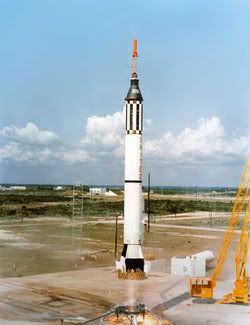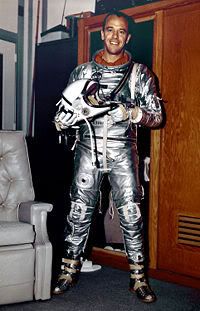 1862 Cinco de Mayo
1862 Cinco de MayoDuring the French-Mexican War, a poorly supplied and outnumbered Mexican army under General Ignacio Zaragoza defeats a French army attempting to capture Puebla de Los Angeles, a small town in east-central Mexico. Victory at the Battle of Puebla represented a great moral victory for the Mexican government, symbolizing the country's ability to defend its sovereignty against threat by a powerful foreign nation.
Napoleon Bonaparte, the former French ruler who once ruled an empire that stretched across Europe, dies as a British prisoner on the remote island of Saint Helena in the southern Atlantic Ocean.

In Lakeview, Oregon, Mrs. Elsie Mitchell and five neighborhood children are killed while attempting to drag a Japanese balloon out the woods. Unbeknownst to Mitchell and the children, the balloon was armed, and it exploded soon after they began tampering with it. They were the first and only known American civilians to be killed in the continental United States during World War II. The U.S. government eventually gave $5,000 in compensation to Mitchell's husband, and $3,000 each to the families of Edward Engen, Sherman Shoemaker, Jay Gifford, and Richard and Ethel Patzke, the five slain children.
1955 Allies End Occupation Of West Germany
The Federal Republic of Germany (West Germany) becomes a sovereign state when the United States, France, and Great Britain end their military occupation, which had begun in 1945. With this action, West Germany was given the right to rearm and become a full-fledged member of the western alliance against the Soviet Union.
 1961 The First American In Space
1961 The First American In Space
From Cape Canaveral, Florida, Navy Commander Alan Bartlett Shepard Jr. is launched into space aboard the Freedom 7 space capsule, becoming the first American astronaut to travel into space. The suborbital flight, which lasted 15 minutes and reached a height of 116 miles into the atmosphere, was a major triumph for the National Aeronautics and Space Administration (NASA).
NASA was established in 1958 to keep U.S. space efforts abreast of recent Soviet achievements, such as the launching of the world's first artificial satellite--Sputnik 1--in 1957. In the late 1950s and early 1960s, the two superpowers raced to become the first country to put a man in space and return him to Earth. On April 12, 1961, the Soviet space program won the race when cosmonaut Yuri Gagarin was launched into space, put in orbit around the planet, and safely returned to Earth. One month later, Shepard's suborbital flight restored faith in the U.S. space program.
NASA continued to trail the Soviets closely until the late 1960s and the successes of the Apollo lunar program. In July 1969, the Americans took a giant leap forward with Apollo 11, a three-stage spacecraft that took U.S. astronauts to the surface of the moon and returned them to Earth. On February 5, 1971, Alan Shepard, the first American in space, became the fifth astronaut to walk on the moon as part of the Apollo 14 lunar landing mission.


1973 56,800 Fans paid $309,000 To See Led Zeppelin At Tampa Stadium.
This was the largest, paid crowd ever assembled in the U.S. to see a single musical act. The concert topped The Beatles 55,000-person audience at Shea Stadium in New York ($301,000).
1981 IRA Militant Bobby Sands Dies
On May 5, 1981, imprisoned Irish-Catholic militant Bobby Sands dies after refusing food for 66 days in protest of his treatment as a criminal rather than a political prisoner by British authorities. His death immediately touched off widespread rioting in Belfast, as young Irish-Catholic militants clashed with police and British Army patrols and started fires.
1986 The Love Boat's Last Cruise
Long-running romantic-comedy series The Love Boat airs its last episode on this day in 1986. The show had been on the air since 1977.
1994 Four Strokes With A Cane On The Buttocks Punishment For Michael Fay.
Fay, an American teenager, was charged along with eight others for vandalism in Singapore.
He, Stephen Freehill, two Malaysian juveniles, and Shiu Chi Ho from Singapore went to trial. Freehill’s crime was reduced to mischief. He was not caned and served no jail term. Shiu served about four months in jail and received six cane strokes.
Fay’s original sentence was four months in jail, a large fine and six caning strokes. With the enormous amount of media coverage in the United States and the intervention of U.S. President Clinton, this was reduced to approximately 3 months in jail, and four strokes.
Although, in the U.S., this is considered unusual and harsh punishment for vandalism, U.S. public support for the whacking was overwhelming (running 90% in Fay’s home town of Dayton, Ohio).


5 comments:
I thought Cinco De Mayo Was in 1810 when mexico broke from spanish rule?
I could be wrong?
1810 to 21 was pre cinco de mayo events that lead up to the major fight ,yep i was off a little , have a great week
Hope you're enjoying your day.
Missie
That's a lot of money for one band isn't it?? Ouchies at the woman and those children!!!
Jenny
http://journals.aol.co.uk/Jmoqueen/MyLife
I had no clue what Cinco De Maya is. Lets hope our economy doesn't fall like it did in 1893.
xx
Lisa
Post a Comment